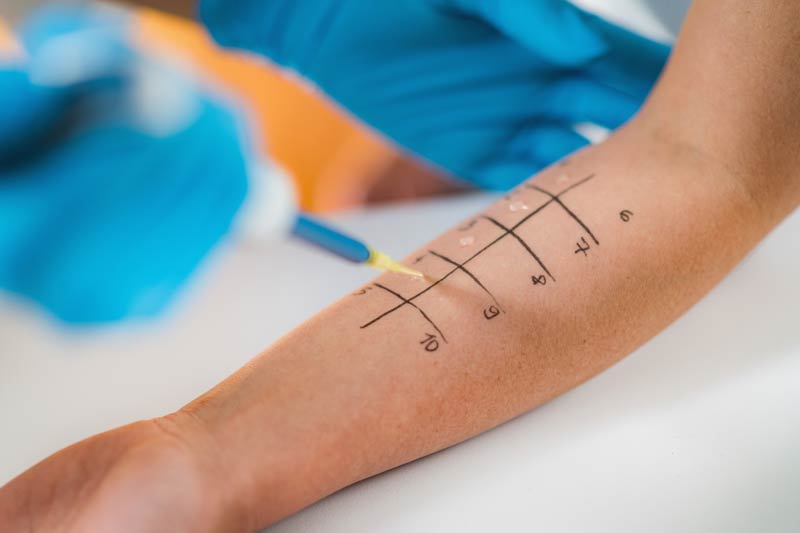If you frequently experience sneezing, itching, rashes, or other unexplained symptoms, you might be suffering from allergies. Allergies can affect people of all ages and can significantly impact quality of life if left undiagnosed and untreated. Fortunately, allergy testing provides a way to identify specific allergens causing your symptoms and helps guide effective treatment plans.
What Is Allergy Testing?
Allergy testing is a diagnostic tool used by healthcare providers to determine what substances trigger allergic reactions in an individual. Allergens can be anything from pollen, dust mites, pet dander, certain foods, insect venom, or medications.
By identifying these allergens, doctors can recommend targeted treatments such as avoidance strategies, medications, or allergy immunotherapy (allergy shots or tablets).
Common Types of Allergy Testing
1. Skin Prick Test (SPT)
The skin prick test is one of the most common and quickest allergy tests. During the procedure:
- Small drops of suspected allergens are placed on the skin, usually on the forearm or back.
- The skin beneath each drop is gently pricked or scratched.
- After about 15-20 minutes, the doctor examines the skin for reactions—redness or swelling indicates an allergy.
This test is safe, minimally invasive, and provides immediate results.
2. Intradermal Test
If the skin prick test is inconclusive, an intradermal test may be performed. This involves injecting a small amount of allergen just under the skin. It is more sensitive but may cause more discomfort and has a higher risk of false positives.
3. Blood Tests (Specific IgE)
Blood tests, such as the RAST (radioallergosorbent test) or ImmunoCAP, measure the level of Immunoglobulin E (IgE) antibodies your immune system produces in response to allergens.
These tests are useful when skin testing isn’t advisable—such as if you have skin conditions like eczema or are taking medications that interfere with skin tests.
4. Patch Testing
Patch testing helps diagnose contact allergies (e.g., reactions to metals, fragrances, or chemicals). Small patches containing allergens are placed on your back and left for 48 hours. The doctor checks for delayed skin reactions over several days.
Benefits of Allergy Testing
Accurate Identification of Allergens
Allergy symptoms can mimic other conditions, making diagnosis difficult without testing. Allergy tests help pinpoint the exact causes of symptoms for personalized care.
Improved Treatment Planning
Knowing your allergens allows your doctor to create an effective treatment plan—whether that means avoiding specific triggers, prescribing medications, or starting immunotherapy.
Prevention of Severe Reactions
For individuals allergic to insect stings or certain foods, testing is vital to prevent life-threatening reactions by guiding avoidance and emergency preparedness.
Enhanced Quality of Life
By controlling allergic triggers, many patients experience better sleep, fewer respiratory problems, and less skin irritation—improving overall well-being.
What to Expect During Allergy Testing
Preparing for the Test
Your doctor may advise you to avoid antihistamines or certain medications before testing, as these can affect results. It’s important to follow their instructions closely.
The Testing Procedure
Testing is usually done in a medical office or allergy clinic. Skin tests involve minimal discomfort—some patients describe a slight itch or prick.
Blood tests require a simple blood draw.
After Testing
For skin tests, the doctor will review the results during the visit. You may experience minor redness or itching at the test sites, which usually resolves quickly.
For blood tests, results typically take a few days to be processed.
Who Should Consider Allergy Testing?
- Individuals with persistent or seasonal allergy symptoms
- Those experiencing unexplained asthma or eczema
- Patients with food allergies or suspected drug allergies
- People with frequent sinus infections or headaches
- Anyone who has had severe allergic reactions
Final Thoughts
Allergy testing is a valuable tool in diagnosing and managing allergies. By understanding your specific triggers, you can take control of your health and reduce the impact of allergies on your daily life. If you experience frequent allergy symptoms or reactions, talk to your healthcare provider about whether allergy testing is right for you.
